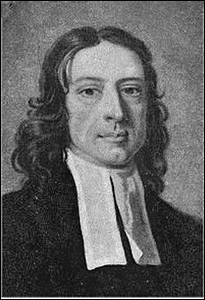 I arrived in a very hot Oxford on Sunday. I didn't realise that England could get quite as hot as it does! It has been lovely. Today, however, the "Queen's rain" (as I have jokingly been calling it) has started to fall. It is lovely, a bit cooler, and quite wet here in Oxford.
I arrived in a very hot Oxford on Sunday. I didn't realise that England could get quite as hot as it does! It has been lovely. Today, however, the "Queen's rain" (as I have jokingly been calling it) has started to fall. It is lovely, a bit cooler, and quite wet here in Oxford.
I am staying in Tom's Gate (off Tom's Quad) in Christ Church, Oxford. Here's a picture taken from just outside of staircase 5 where I go up to my rather extravagant parlour... It would seem that the title 'Dean' carries some weight here in merry old England. I am on the same floor as our Presiding Bishop, Ivan Abrahams, and a number of other dignitaries. If only they knew what a small fry I truly am!
Christ Church is a remarkable College, one of the early one's (starting in 1524!) Two of my colleagues studied here in previous years (Dr Neville Richardson did an MPhil, and Dr Donald Cragg did a DPhil). Those must have been glorious times! Of course there are many other notable figures that studied and lived in these hallowed walls. Among them are John and Charles Wesley (the founders of Methodism - and also the reason why we hold the Oxford Institute here at Oxford, since it is the home of the very first Methodist scholars), John Locke (the philosopher), Charles Dodgson (better know to most by his pseudonym, Lewis Caroll, who is the author of 'Alice's adventures in wonderland'). Albert Einstein even studied here in the 1930's! For more detailed (and accurate) information on Christ Church please check out their website here.
 This picture was taken in the Christ Church dining hall. If it looks familiar don't be surprised! Take a closer look, indeed, this is the location where dining hall scenes from Harry Potter were filmed! I can assure you there are no candles floating in the air, or owls delivering messages!
This picture was taken in the Christ Church dining hall. If it looks familiar don't be surprised! Take a closer look, indeed, this is the location where dining hall scenes from Harry Potter were filmed! I can assure you there are no candles floating in the air, or owls delivering messages!
The traditions are still very strongly adhered to. Guests go into the dining hall and are only seated once the dignitaries take their seats (although they are not sitting at the 'top table'), then we are served by 'Scouts' under the watchful eye of the 'Steward'. The gate and main door are guarded by 'Porters' to keep eager Harry Potter enthusiasts from barging in on the meals. You can see that the walls themselves are lined with the portraits of past students and lecturers of the College.
I am truly enjoying the hospitality and the tradition of being here. Of course, for an African, what makes this place most valuable is being part of the community. It has been wonderful to meet new friends (many of whom I have either only read about, or read their work), such as Randy Maddox, Douglas Meeks, Paul Chilcote, Neil Richardson, Brian Beck etc., and catch up with others who I have not seen in some years, such as my good friend Laceye Warner, the well known Geoffrey Wainwright, Ted Campbell, JC Park, and Dick Heitzenrater.
Each day starts with worship at 7am, then we have breakfast (in the Harry Potter dining hall!), after which we move to Wesley Memorial Methodist Church for the Plenary sessions, followed by our individual group meetings (I am in the Systematic Theology Group). In the group meetings the scholars present have a chance to speak to their paper, there is a respondent, and then general discussion. If you're interested to read some of the magnificent papers that are being, and have been, presented, then please download them from the Oxfrod institute website here.
I have only had limited Internet access in Oxford (I cannot believe how difficult it is to get online in the UK! I think as more and more people realise what a commodity communication is the wifi is shared less openly and is more often than not a service for which one is expected to pay). However, I shall be posting some reflections from the papers and groups, plus a number of audio recordings from the Plenary sessions, as I have a chance to do so.
I can't tell you how much I am missing my family!!!!! I miss Megie so much!!! Times away from her remind me just how desperately I am in love with her. I have also longed for Courtney and Liam. It has been very difficult to be away from them! Please do pray for them, and drop them a line or give them a call to let them know that we belong to a community of faith that cares for one another!
Here's a closing thought that came from Douglas Meeks in a discussion; we were talking about wealth and ownership of property (well, ownership in general) when Douglas reminded me that John Wesley's understanding of stewardship (how one uses one's money) was based upon that of the Patristics (the early Church parents). Wesley believed that whatever I do not need to survive today, or need in order to fulfill the mission to which God has called me, already belongs to the poor. And, as such, I should give it away! I was challenged by that!
Rich blessing to all! I miss you! Please check back for more news, thoughts and updates from Oxford.
 Monday, November 24, 2025 at 9:12AM
Monday, November 24, 2025 at 9:12AM 






